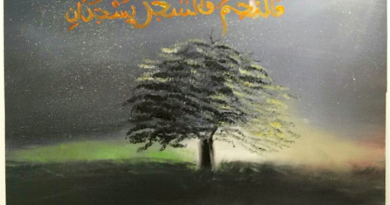Haiku: Japanese Traditional Poetry
Merriam Webster Dictionary defines Haiku as:
“An unrhymed verse form of Japanese origin having three lines containing usually five, seven, and five syllables respectively; also: a poem in this form usually having a seasonal reference”
Haiku is one of the important traditional form of Japanese poetry. It is short, impressionistic, has its own format, and rarely rhymes. Its first known use was in 1902.
Haiku format: 5 – 7 – 5
Because Haikus are very short poems that are based on simplicity and meditative thinking, they are usually written about topics that are recognizable by a lot of people, moments that are inspiring, and most often related to nature, seasons, animals, and regular everyday event.
Some tips on writing a Haiku:
- One needs to be observant and appreciate nature.
- One also must be able to capture something true about the moment’s existence by using understated, subtle imagery, so the readers may understand it in some way. Show them (by describing), don’t tell. And let the readers finish the poems in their own hearts.
- Use a division, which focuses first on one thing, then to another. Write a third line that is a complete surprise, that is about something completely different from the first two lines.
- The ability to identify syllables and follow Haiku format is of course very important, too!
Not sure what a syllable is? See below:
The word “Haiku” has 2 syllables: Hai – ku
The word “Poetry” has 3 syllables: Po – et – ry
The word “Japanese” has 3 syllables: Ja – pa – nese
The word “Observation” has 4 syllables: Ob – ser – va – tion
Haiku is a good way to encourage the appreciation and writing of poetry. A fun exercise would be to try to write one (or two, or three) with your friends or with your children, and then play guessing-game about what each Haiku poet was describing (after listening to or reading it).
Here are some famous Haiku by known poets:
An old silent pond…
A frog jumps into the pond,
Splash! Silence again.
(By Matsuo Basho)
First autumn morning
The mirror I stare into
Shows my father’s face.
(By Murakami Kijo)
Life goes by moving,
Up and down a chain of moods
Wanting what’s nothing.
(By Lewis Grandison Alexander)
And here are some that we have created, relating to the beauty of certain moments and our faith:
Pitch-dark universe
Sun rises from its slumber –
Start with Bismillah
Blank paper and pen
A writer comes in the scene –
Start with Bismillah
*****
Dega
Sources:
www.merriam-webster.com/dictionary/haiku
www.haiku-poetry.org/famous-haiku.html
www.creative-writing-now.com/how-to-write-a-haiku.html

